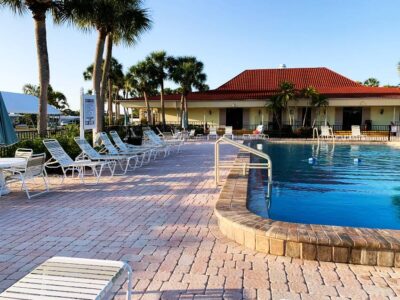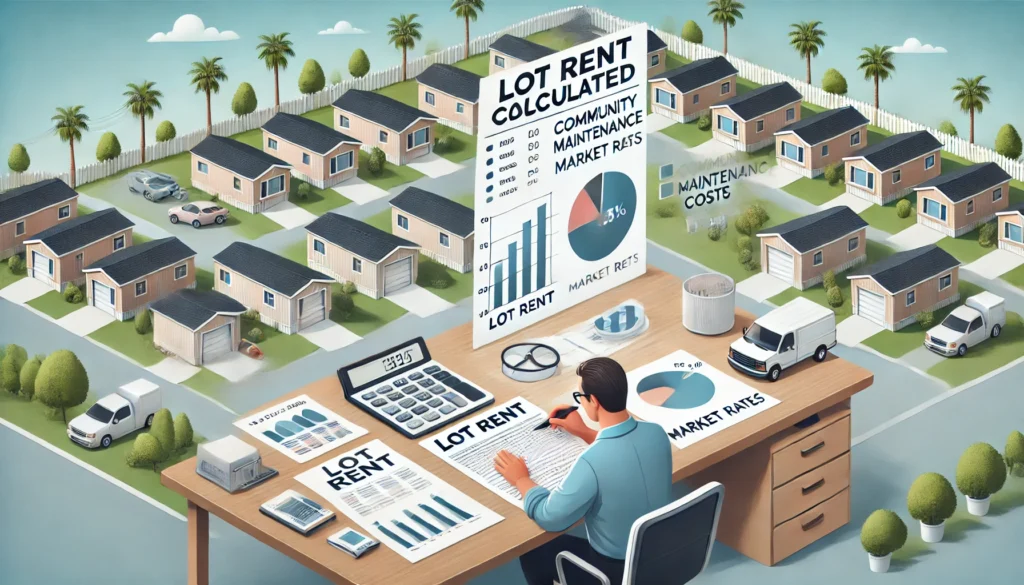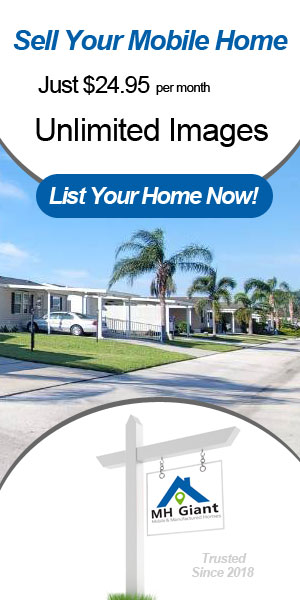Table of Contents
Key Takeaways
- Florida lot rent varies widely by region and community type. Typical monthly lot rent ranges roughly from about $400–$700 in North Florida, $600–$1,000 in Central Florida, $900–$1,500+ along the Gulf Coast, and $1,200–$2,000+ in Keys/coastal areas, with higher costs often tied to amenities, location, and demand.
- How lot rent is calculated in Florida often includes more than just land use.
- Increases to lot rent are typically permitted under Florida law and lease terms, but they must follow written agreement provisions and/or statutory requirements (e.g., notice periods and non-arbitrary increases tied to factors like CPI or operational costs).
- Common methods for calculating increases include: adjustments based on the Consumer Price Index (CPI), park operational cost changes (taxes, insurance, utilities), and market rate shifts in local demand.
How Lot Rent Is Calculated in Florida
Florida is one of the most popular states in the country for mobile and manufactured home living , especially for retirees and snowbirds seeking sunshine and community life without the high price tag of traditional housing.
This guide explains How Lot Rent Is Calculated in Florida, including factors like location, amenities, and park operating expenses.
But whether you’re purchasing a home in a land-lease community or moving your existing mobile home into a park, one ongoing expense will shape your monthly budget: lot rent.
Understanding how lot rent is calculated can help you make smart financial decisions, avoid surprises, and even negotiate better terms. Let’s break down exactly how it works in Florida. Understanding How Lot Rent Is Calculated in Florida helps mobile home owners budget for monthly housing costs more accurately.
What Is Lot Rent?
Lot rent , sometimes called “ground rent” , is the monthly fee residents pay to lease the land beneath their home. It’s what gives you the right to live on and use that space within the community. Many residents want to know How Lot Rent Is Calculated in Florida before purchasing a mobile home in a park.

Most residents own their home but not the land it sits on. The land is leased from the park owner or management company. That means you’re responsible for your home’s upkeep, while the community handles the roads, landscaping, and amenities , all funded in part by your lot rent. While each community sets its own pricing, How Lot Rent Is Calculated in Florida is typically governed by lease terms and state regulations designed to protect residents.
It’s important to note that lot rent is not the same as HOA fees or property taxes. HOA dues cover association expenses and community management; property taxes are assessed on land and structures. Lot rent is specifically for the use of the land your home occupies. How lot rent is calculated in Florida is often outlined in the park’s prospectus or lease agreement, which may reference operating expenses, market conditions, or Consumer Price Index (CPI) adjustments.
Key Factors That Determine Lot Rent in Florida
1. Location
Just like real estate, lot rent in Florida is heavily influenced by location. Because Florida has strong demand in coastal and snowbird-heavy areas, how lot rent is calculated in Florida can vary significantly from one region or community type to another.
- Communities near beaches or major metro areas like Sarasota, Naples, Tampa, or Palm Beach command higher rents.
- Inland or northern regions such as Ocala, Sebring, or Lake City tend to offer lower rates.
- Areas with high tourism traffic or snowbird populations often see seasonal spikes or waiting lists.
2. Community Amenities
 Florida’s manufactured home parks range from simple, quiet neighborhoods to full-service resort-style communities. The more amenities offered, the higher your rent will be.
Florida’s manufactured home parks range from simple, quiet neighborhoods to full-service resort-style communities. The more amenities offered, the higher your rent will be.
Common features that affect pricing include:
- Heated swimming pools and spas
- Clubhouses and fitness centers
- Shuffleboard, pickleball, or golf courses
- Security gates and on-site management
- Organized social activities and events
Each amenity adds to the community’s maintenance costs, which are passed along to residents through lot rent.
100 Frequently Asked Questions about Mobile Homes
3. Land Ownership & Lease Type
Who owns the land , and how your lease is structured , also plays a big role in pricing. How Lot Rent Is Calculated in Florida often depends on market demand, maintenance costs, and community services provided.
- Privately owned parks may offer flexible rent structures but can vary widely in quality.
- Corporate-managed communities often have standardized pricing and professional management but slightly higher rents.
- Fixed-term leases (multi-year agreements) may lock in a specific rent schedule, while month-to-month leases can fluctuate with market conditions.
4. Maintenance and Infrastructure Costs
Every community has ongoing expenses: road repairs, landscaping, clubhouse upkeep, lighting, and utilities. These costs are distributed across residents. When utility costs rise or new infrastructure is added , for example, upgraded drainage or water systems , it can lead to an increase in monthly rent.
5. Market Demand and Seasonal Trends
Florida’s population of retirees and seasonal residents has grown steadily, especially along the coasts. High demand pushes up lot rents in desirable areas.
Winter months bring a surge of snowbirds, so communities with short-term leases or RV-mobile home hybrids may see temporary rate adjustments or limited availability.
Typical Lot Rent Prices Across Florida
Lot rent in Florida varies widely depending on region, amenities, and community ownership. Here’s a general idea of what to expect:
| Region | Typical Range (Monthly) | Common Features |
|---|---|---|
| Gulf Coast (Sarasota, Naples, Clearwater) | $900 – $1,500 + | Resort amenities, coastal access, snowbird popularity |
| Central Florida (Lakeland, Orlando, Winter Haven) | $600 – $1,000 | Pools, clubhouses, active adult communities |
| North Florida (Ocala, Tallahassee, Lake City) | $400 – $700 | Smaller parks, quieter lifestyle |
| Florida Keys & Coastal Islands | $1,200 – $2,000 + | Waterfront property, limited availability |
Average statewide lot rent typically falls between $500 and $1,200 per month, but can exceed $1,500 in premium resort communities. Always ask what’s included , utilities, trash removal, cable, or lawn care can significantly affect the total. When researching mobile home parks, understanding How Lot Rent Is Calculated in Florida is just as important as the home price itself.

How Lot Rent Increases Are Calculated
Most lot rent agreements in Florida include a clause allowing for annual increases. These adjustments are regulated under Florida Statute 723, part of the state’s Mobile Home Act, designed to protect both park owners and residents. How Lot Rent Is Calculated in Florida may also be influenced by utilities, taxes, and long-term lease agreements.
Common Adjustment Methods
- CPI-Based Adjustments
Some leases tie rent increases to the Consumer Price Index (CPI) , meaning rent rises in line with inflation. - Operational Cost Increases
If the park’s property taxes, insurance, or utility costs rise, those expenses can be passed to residents proportionally. - Market Rate Adjustments
In areas with growing demand, communities may raise rent to stay competitive with nearby parks.
Resident Rights
Under Florida Statute 723, management must:
- Provide 90 days’ written notice before any rent increase takes effect.
- Explain the reason and calculation behind the increase.
- Offer residents the opportunity for meetings or mediation if the increase seems unreasonable.
If a rent hike feels excessive, residents can contact the Florida Department of Business and Professional Regulation (DBPR) or their local Homeowners Association (HOA) for assistance. Florida Statute protections govern lot rent increases and lease terms. Laws under Florida Statute Chapter 723 (Mobile Home Act) outline how rent changes are handled, required disclosures, and resident rights when increases occur.
Additional Costs to Consider
While lot rent covers the land, you may still be responsible for several add-on expenses:
- Utilities: Electricity, water, sewer, and trash collection are often billed separately or through the park.
- Pass-Through Fees: Some communities charge for major infrastructure upgrades or shared services like cable or internet.
- Property Taxes: If you own the mobile home itself (not the land), you may still pay an annual registration or tag fee instead of property tax.
- HOA or Club Fees: Independent associations sometimes collect small dues for social activities or community improvements.
Always request a written breakdown of what’s included in your rent before signing any lease.
 Tips for Managing and Reducing Lot Rent
Tips for Managing and Reducing Lot Rent
1. Review Your Lease Carefully
Before signing, read every clause , especially those concerning rent increases, renewals, and notice periods. Watch for automatic escalation clauses tied to CPI or “market adjustments.”
2. Negotiate Long-Term Stability
Some communities are open to longer lease terms with limited annual increases. Locking in a multi-year lease can provide stability and protect against steep hikes.
3. Participate in Resident Associations
Resident-owned associations or co-ops give you collective bargaining power. Under Florida law, residents have the right to organize and meet with park management regarding rent concerns.
4. Compare Total Costs
When evaluating different communities, compare total monthly costs, not just base rent. A $900 lot rent that includes utilities might be cheaper than a $700 lot with extra service charges. Knowing How Lot Rent Is Calculated in Florida allows homeowners to compare communities more confidently.
5. Track Market Rates
Use resources like MH Giant’s Florida listings to compare lot rents across regions. Staying informed helps you spot fair pricing , and opportunities to move to more affordable parks if needed.
The Ultimate Mobile Home Glossary of Terms
Legal Protections and Resources
Florida takes mobile home residency seriously. The Mobile Home Act (F.S. 723) offers strong consumer protections, including:
- Mandatory disclosure of fees before signing a lease
- Regulation of eviction procedures
- Rights to mediation or arbitration for disputes
You can learn more or file a complaint through the Florida Department of Business and Professional Regulation (DBPR) at www.myfloridalicense.com.
Summary
Lot rent is the heartbeat of mobile home living in Florida , it keeps communities running smoothly and residents enjoying the lifestyle they love. Understanding how it’s calculated helps you plan ahead, protect your rights, and find the best fit for your budget. For many residents, knowing how lot rent is calculated in Florida can reduce surprises, especially when annual increases or additional fees are involved.
Knowing what’s included and how increases work can help residents budget and negotiate effectively. Asking upfront about included services and understanding the basis for rent changes gives residents more clarity and negotiating confidence. Because Florida has strong demand in coastal and snowbird-heavy areas, how lot rent is calculated in Florida can vary significantly from one region or community type to another.
Before committing to any community, ask questions, read the fine print, and compare options. Whether you’re a full-time Floridian or a seasonal snowbird, smart planning ensures you enjoy the sunshine without financial surprises.

 Tips for Managing and Reducing Lot Rent
Tips for Managing and Reducing Lot Rent